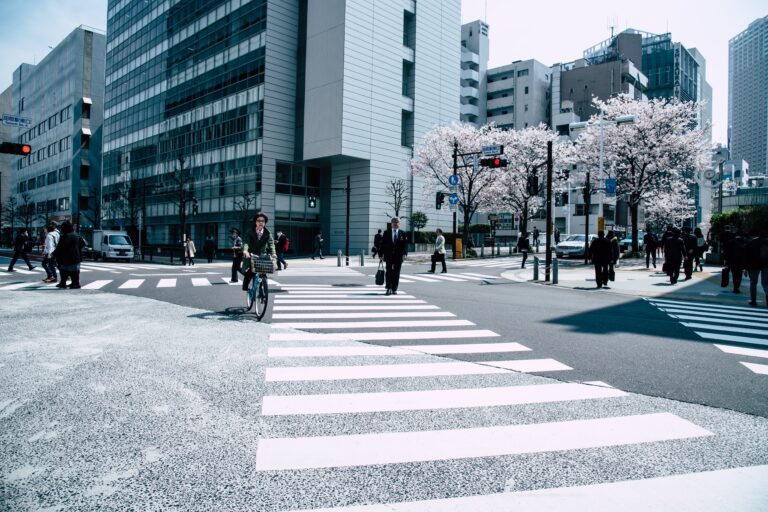Japan is increasingly becoming a popular destination for those seeking to invest in real estate. Known for its stable economy, efficient infrastructure, and rich cultural heritage, buying property in Japan is an attractive opportunity. Whether you’re eyeing a bustling apartment in Tokyo or a serene vacation home in Kyoto, this guide will help you understand the process, challenges, and benefits of owning property in Japan.
Read on to explore everything you need to know before making your purchase.
Why Buy Property in Japan?
Stability and Growth
Japan’s economy is one of the most robust globally. Though its real estate market doesn’t experience dramatic price spikes, it offers steady value retention and occasional growth in prime areas like Tokyo and Osaka.
Cultural and Scenic Appeal
Apart from being a global economic hub, Japan’s mix of modernity and tradition is unmatched. Whether you’re drawn to ancient temples or climates ideal for skiing, Japan’s varied locales have something for everyone.
Ownership Benefits Even for Foreigners
One unique aspect of purchasing property in Japan is that foreign buyers face no legal restrictions. Unlike in some countries, you can own property in Japan outright without needing to be a resident or citizen.
Steps to Buying Property in Japan
Getting started might seem daunting, but the buying process in Japan is structured and transparent. Here’s a breakdown:
1. Define Your Purpose and Budget
Know why you’re buying. Are you investing, relocating, or planning for vacation stays? Combine this purpose with your budget to narrow down locations and types of properties.
Key tip: Don’t forget to account for taxes, registration fees, and agent costs in addition to the property’s price.
2. Choose a Location
The location depends on your priorities:
- Tokyo: For business and convenience.
- Kyoto: Ideal for those seeking traditional vibes and cultural attractions.
- Hokkaido: Known for its skiing and scenic beauty.
Explore housing data and market trends to get a clearer picture of each region’s property value over time. This article on Japan’s cost of living can help with budget planning.
3. Partner with a Real Estate Agent
Hiring an experienced agent familiar with working with international clients will simplify the next steps. Agents help avoid pitfalls and ensure compliance with Japanese legal requirements.
Consider contacting agencies focused on helping foreign buyers, as they can provide bilingual support.
4. Conduct Due Diligence
Before purchasing, ensure you’re fully informed about the property:
- Building codes and regulations (especially in urban centers like Tokyo).
- History of repairs or renovations.
- Land rights, as some properties may have co-ownership issues.
Real estate surveys provided during the purchase process will often include these details.
5. Secure Financing
Foreign buyers aren’t restricted from applying for loans in Japan, though lending terms might be stricter than you’re used to. Ensure you meet all requirements, such as proof of steady income, and prepare for potentially higher interest rates for non-residents.
Pro tip: If you’re paying from abroad, choosing the right international money transfer method ensures you won’t lose money on fees or poor exchange rates. Learn how to send money to Japan safely.
6. Finalize the Legal Process
The final steps generally involve:
- Hiring a judicial scrivener who specializes in real estate transactions.
- Completing the title deed registration.
- Paying necessary taxes, including stamp duties and property registration taxes.
Once the process is completed, you’re officially a property owner in Japan!
Challenges Foreign Buyers May Face
While the buying process in Japan is straightforward, there are challenges to be aware of:
Language and Documentation
Most paperwork and contracts are in Japanese, which can be a barrier if you’re not fluent. Always work with a bilingual agent to minimize confusion.
Differences in Property Standards
Understanding how property standards in Japan vary from those in your home country can save you confusion. For example, the average living space per home in Japan is smaller compared to Western standards, especially in city apartments.
Market Trends
The Japanese real estate market has a unique structure. While urban centers experience steady growth, rural areas often have low resale potential. Weigh your decision accordingly.
Advantages of Investing in Japan vs. Other Real Estate Markets
Curious how the Japanese real estate market stacks up against others? Here’s why Japan remains a solid choice:
1. Low Barrier for Foreign Ownership
Unlike other countries, Japanese laws do not restrict foreign ownership of land or houses.
2. Tax Benefits
Property taxation is relatively straightforward and often lower than in many Western countries.
3. Strong Legislative Framework
Japan’s real estate laws ensure transparency, reducing risks for buyers.
4. Access to Global Hubs
Major cities like Tokyo, Yokohama, and Osaka are international transportation and business centers.
Expert Tips for First-Time Buyers in Japan
Use these tips to maximize your real estate investment in Japan:
- Understand Building Durability: Japanese homes often depreciate over time, with a standard property lifespan of 30–40 years. Check when the property was built before purchasing.
- Explore Remote Areas: Rural properties can offer great deals and unique settings, though they might require additional work for renovations.
- Verify Zoning Laws: Ensure the property meets your intended usage, especially for developments or renovations.
FAQ
Can I rent out my property in Japan as a foreign owner?
Yes, foreigners can rent out properties they own. However, depending on the area and property type, you may need special permits for short-term rentals like Airbnbs.
Do I need a Japanese bank account for the purchase?
It’s not absolutely required for buying property, but having one helps simplify the financial process, especially for paying taxes and other fees.
What are the tax implications for foreign buyers?
You’ll be responsible for a fixed asset tax (based on property value) and annual income tax on rental earnings if applicable. Check local tax codes or consult a tax advisor in Japan.
Can I get permanent residency if I buy property in Japan?
Buying property alone does not qualify you for permanent residency. Residency is usually determined by visa type and duration of stay in Japan.
Take the Next Step Toward Your Dream Property in Japan
Buying property in Japan is a smart way to invest in one of the world’s most stable and exciting countries. Whether you’re considering a bustling city apartment or a serene countryside retreat, the resources and opportunities available to foreign buyers are extensive.
If you’re ready to begin your property search, learning the financial logistics is just as important. To understand cross-border transactions better, check out this complete guide on sending money safely to Japan.

